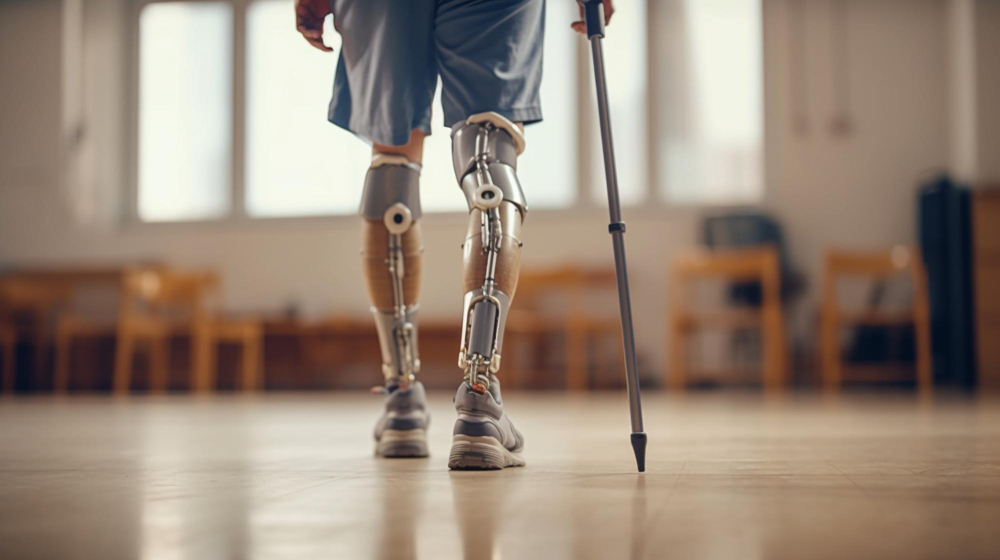Amputation can be a life-changing event, impacting a person’s physical, emotional, and social well-being. However, with the help of physiotherapy, individuals who have undergone amputation can regain mobility, independence, and quality of life. Amputation therapy is a specialized area of physiotherapy that focuses on optimizing function, managing pain, and improving the overall well-being of amputees.
Pre-Prosthetic Rehabilitation: Before receiving a prosthetic limb, individuals undergo pre-prosthetic rehabilitation to prepare their residual limb and improve their physical condition. Physiotherapists work closely with patients to:
- Reduce swelling and promote healing in the residual limb.
- Improve strength, flexibility, and range of motion in the remaining joints.
- Teach proper skin care and residual limb hygiene.
Prosthetic Training: Once the residual limb has healed, individuals are fitted with a prosthetic limb. Physiotherapists play a crucial role in prosthetic training, helping patients:
- Learn how to properly use and care for their prosthetic limb.
- Improve balance, coordination, and proprioception with the prosthetic limb.
- Build strength and endurance to adapt to the new demands of using a prosthetic limb.
Gait Training: Gait training is an essential component of amputation therapy, focusing on teaching individuals how to walk with their prosthetic limb. Physiotherapists assess gait patterns and provide:
- Exercises to improve balance, strength, and coordination.
- Techniques to optimize walking efficiency and reduce strain on the body.
- Education on fall prevention and safe mobility with a prosthetic limb.
Pain Management: Pain management is a key aspect of amputation therapy, as individuals may experience phantom limb pain or residual limb pain. Physiotherapists use a variety of techniques, including:
- Desensitization exercises to reduce sensitivity in the residual limb.
- Massage and stretching to alleviate muscle tension and pain.
- Education on pain-relief strategies and coping mechanisms.
Psychological Support: Amputation can have a significant psychological impact, and physiotherapists provide emotional support and encouragement throughout the rehabilitation process. They work closely with patients to address:
- Body image issues and self-esteem.
- Coping strategies for managing the emotional challenges of amputation.
- Goal setting and motivation to achieve optimal function and independence.
Amputation therapy is a specialized area of physiotherapy that focuses on helping individuals who have undergone amputation regain mobility, independence, and quality of life. Through pre-prosthetic rehabilitation, prosthetic training, gait training, pain management, and psychological support, physiotherapists play a crucial role in the holistic care of amputees. By working closely with a physiotherapist, individuals can achieve their rehabilitation goals and live life to the fullest after amputation.



